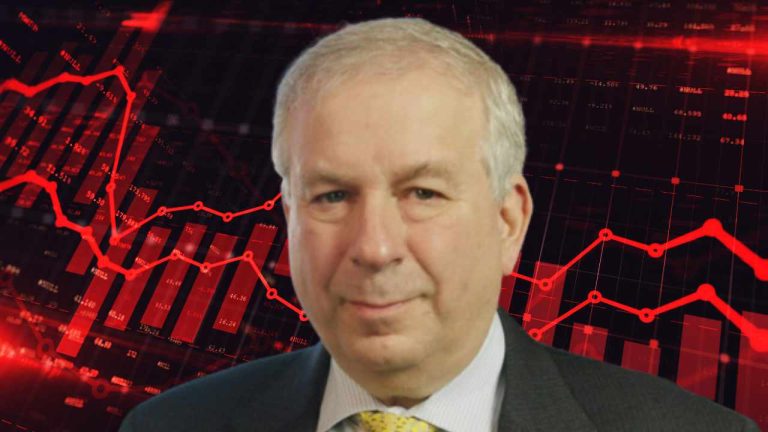
Regulatory uncertainty and the recent enforcement actions taken against major crypto exchanges reduces the odds of Bitcoin breaking above $30,000 in the short-term, but investors are still bullish.
Bitcoin (BTC) might have shown strength after successfully defending the $28,000 support amid unfounded rumors regarding Binance, but an interesting development to note is BTC is becoming less correlated to traditional markets after the U.S. Federal Reserve elected to provide emergency liquidity to banks.
This change in attitude from the central bank has caused a shift in the trajectory of US Treasuries as traders sought refuge from the inflationary upward pressure. Bitcoin appears to be agnostic to the movement and its price has been hovering around $28,000 for the past week.
Meanwhile, the yield on the 5-year note fell to 3.50% on April 3, a drop from 3.70% in the previous week. Higher demand for debt instruments reduces payout, resulting in a lower yield. The $152.6 billion in outstanding borrowings from the U.S. Federal Reserve's backstop lending program has been the driving factor.
The general public's lack of trust in banks has also caused them to reconsider what the Federal Deposit Insurance Corporation (FDIC) is and how the Fed no longer controls the inflation trajectory. The question of whether Bitcoin can serve as a reliable store of value during a crisis remains open, but the 70% year-to-date gains certainly demonstrate a point.
Investors are reducing their cash positions
According to data from Bank of America, the total assets of money market funds in the United States reached a record high of $5.1 trillion. These instruments invest in short-term debt securities such as the U.S. Treasuries, certificates of deposit and commercial paper. Furthermore, fund manager and analyst Genevieve Roch-Decter, CFA, states that investors have withdrawn $1 trillion from banks because money market funds offer a much higher return.
Good Morning Everyone! Since the recent high, total deposits at U.S banks are down a record $1 trillion. Where did the money go? A lot went to money market funds which just hit a record high. Who wants to make 0.3% with a bank account when you can make 5% in a money market fund! pic.twitter.com/t3RTETIHIA
— Genevieve Roch-Decter, CFA (@GRDecter) April 3, 2023
Even though Bitcoin investors view cryptocurrencies as a safe haven against inflation, a recession would reduce demand for goods and services, resulting in deflation. The risk increased substantially after the March U.S. ISM Purchasing Managers Index data was released. At 46.3, the indicator reached its lowest level since May 2020, below analysts' forecast of 47.5, indicating contraction.
According to Jim Bianco, macro analyst at Bianco Research, this was the 16th time since 1948 that the level had reached such a low point, and in 75% of those instances, a recession followed.
ISM is out today at 46.3, the lowest since May 2020, the month after the COVID recession ended,
— Jim Bianco biancoresearch.eth (@biancoresearch) April 3, 2023
ISM started surveying in 1948. As this chart shows, this is the 16th time the ISM has been 46.3 or lower.
12 (75%) of these instances, the economy was either in recession or about to… pic.twitter.com/5Pw5zfFOrs
Let's examine Bitcoin derivatives metrics to determine the current market position of professional traders.
Bitcoin derivatives traders did not fold under the FUD
Bitcoin quarterly futures are popular among whales and arbitrage desks, which typically trade at a slight premium to spot markets, indicating that sellers are asking for more money to delay settlement for a longer period.
As a result, futures contracts on healthy markets should trade at a 5% to 10% annualized premium — a situation known as contango, which is not unique to crypto markets.

Since March 30, the Bitcoin futures premium has been hovering near the neutral-to-bearish threshold, indicating that professional traders are unwilling to turn bullish despite the BTC price remaining near $28,000.
The absence of demand for leverage longs does not always imply a price decline. As a result, traders should investigate Bitcoin's options markets to learn how whales and market makers value the likelihood of future price movements.
The 25% delta skew indicates when market makers and arbitrage desks overcharge for upside or downside protection. In bear markets, options traders increase their odds of a price drop, causing the skew indicator to rise above 8%. Bullish markets, on the other hand, tend to drive the skew metric below -8%, indicating that bearish put options are in less demand.
Related: Bitcoin price bounces after CZ arrest rumors as traders eye $30K next

The 25% skew ratio is currently at -5 because protective put options are trading slightly cheaper than neutral-to-bullish calls. That is a bullish indicator given the recent FUD generated after CFTC sued Binance on March 27. The regulator alleges that Binance and CZ violated regulatory compliance and derivatives laws by offering trading to US customers without registering with market regulators.
So far, Bitcoin has held up well as the baking sector forced the Fed to reverse its credit-tightening policy. However, as long as regulatory uncertainty surrounds major crypto exchanges, Bitcoin is unlikely to break above $30,000.
The views, thoughts and opinions expressed here are the authors’ alone and do not necessarily reflect or represent the views and opinions of Cointelegraph.
This article does not contain investment advice or recommendations. Every investment and trading move involves risk, and readers should conduct their own research when making a decision.









